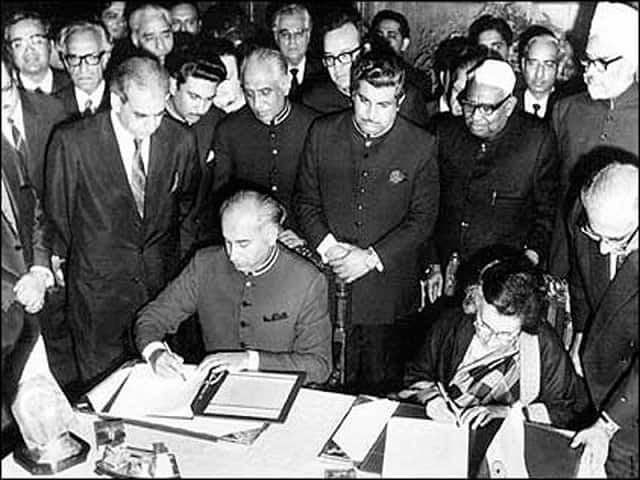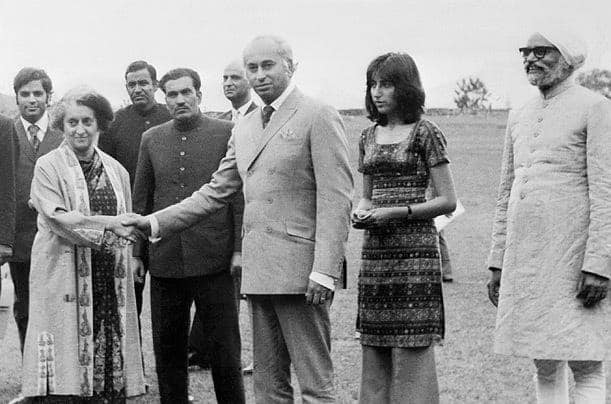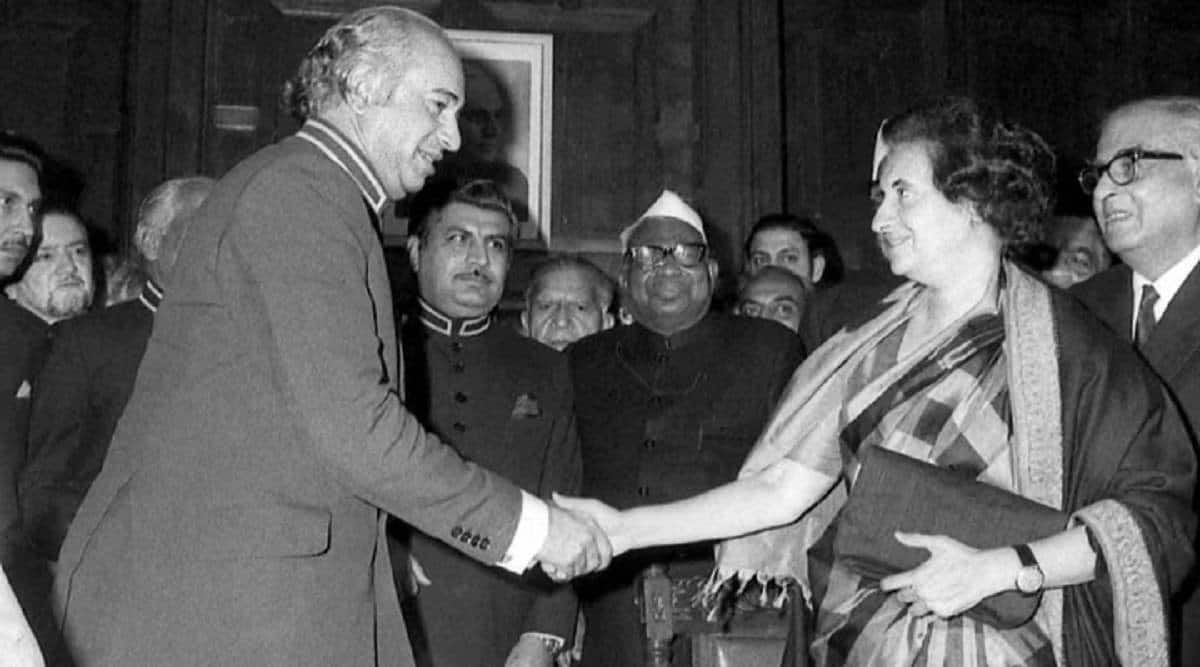In a significant escalation of hostilities, Pakistan has announced the suspension of 1972 Shimla Agreement with India, following the recent terror attack in Pahalgam, which resulted in the deaths of 26 individuals, predominantly Hindu tourists.
The Shimla Agreement, signed by Indian Prime Minister Indira Gandhi and Pakistani President Zulfikar Ali Bhutto, has been a cornerstone of Indo-Pakistani relations, emphasizing the resolution of disputes through bilateral negotiations and respect for the Line of Control (LoC).
The Pakistani government's decision to suspend the agreement marks a departure from decades of diplomatic protocol and raises concerns about the potential for increased tensions in the region. The Shimla Agreement has long been viewed as a framework for peace and conflict resolution between the two nuclear-armed neighbors.
The Shimla Agreement was signed on July 2, 1972, between India and Pakistan, following the 1971 Bangladesh Liberation War (also called the Indo-Pak war of 1971), in which India decisively defeated Pakistan and over 90,000 Pakistani soldiers surrendered. This led to the creation of Bangladesh, formerly East Pakistan.
The agreement was signed in Shimla, Himachal Pradesh, by Indian Prime Minister Indira Gandhi and Pakistani President Zulfikar Ali Bhutto, marking a significant turning point in India's geopolitics.

The agreement had five core objectives:
- Establish lasting peace between India and Pakistan after the trauma of war.
- Lay down diplomatic norms: Both countries agreed to settle all disputes — including Kashmir — bilaterally, without involving external powers (especially ruling out UN or third-party intervention).
- Respect the Line of Control (LoC) in Jammu & Kashmir — a ceasefire line drawn post-war — and to not attempt to alter it unilaterally or by force.
- Restore normal diplomatic relations, including the repatriation of prisoners of war and civilian internees.
- Commit to peaceful coexistence and mutual respect for territorial integrity and sovereignty.
In essence, it served as a blueprint for post-war peace and has since formed the basis of India’s consistent insistence that all Indo-Pak issues must be resolved bilaterally.

The suspension of the Shimla Agreement by Pakistan could have far-reaching implications, including the potential for increased international involvement in the Kashmir dispute, which India has traditionally opposed. The move also undermines existing mechanisms for conflict resolution and raises the risk of further destabilization in the region.
If Pakistan were to unilaterally suspend or withdraw from the Shimla Agreement, the consequences would be serious and multidimensional:
Collapse of the Bilateralism Framework
The Shimla Agreement enshrines the principle that India and Pakistan must resolve disputes without third-party involvement.
Scrapping it would enable Pakistan to internationalise the Kashmir issue again, especially at forums like the United Nations — something India has opposed for decades.
Destabilisation of LoC Status Quo
The agreement reaffirmed respect for the LoC as a de facto boundary.
Revoking it could provoke military instability or justify increased ceasefire violations, as the diplomatic understanding underpinning the LoC would be void.
Increased Diplomatic Tensions
Relations between the two countries, already strained after the Pahalgam attack, would deteriorate further.
It may result in embassy staff downsizing, cancellation of people-to-people contact programmes, and further degradation of diplomatic channels.
Loss of Moral High Ground for Pakistan
From a global diplomatic lens, Pakistan walking away from a peace accord might backfire, painting it as a belligerent actor unwilling to uphold international commitments.
It may weaken Islamabad’s case on Kashmir rather than strengthen it, particularly among neutral or Western powers.
Legal Vacuum for Conflict Management
The Shimla Agreement, though bilateral and not legally binding under international law, has long served as the moral and political anchor for crisis management between the two nations.
Without it, the absence of a conflict-resolution mechanism could lead to escalation and miscalculation during future standoffs.
The Shimla Agreement is more than just a treaty — it is the last standing formal peace framework between India and Pakistan. If Pakistan were to scrap it, especially after the Pahalgam terror attack, it could trigger a diplomatic crisis, revive demands for international arbitration (which India resists), and fuel volatility in an already fragile region.
You may also like

Massive landslides hit north Sikkim; permits for travel suspended amid heavy rain

Forgotten Chelsea star sends Jamie Vardy emotional message after Leicester City announcement

Trump issues 5-word response when asked about peace deal deadline

Why Luke Littler was booed in Liverpool as Premier League jeers explained

What! Trump selling 2028 hats on official site? Eric Trump says 'never say never'







